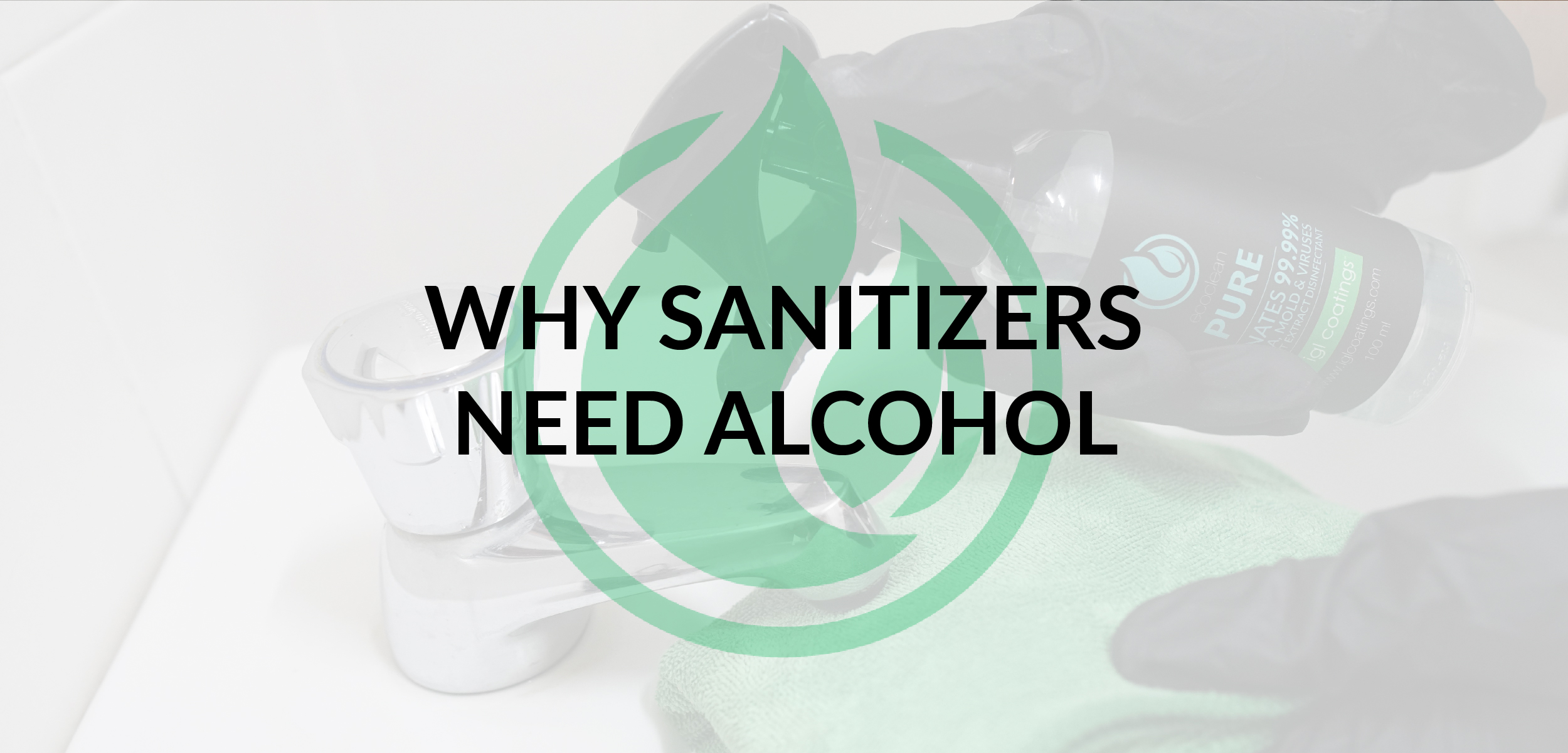Sanitizers are the perfect alternative to soap and water when they’re not available. It’s why sanitizers are in such high demand today. But are all sanitizers the same? What makes one sanitizer better than the next?
Read on to find out more!
Plus, why using your stash of vodka to sanitize is a BAD IDEA.

 At this concentration, alcohol is able to denature proteins in the structures of germs. Bacteria and viruses are made up of protein structures and the presence of alcohol inhibits their ability to rapidly multiply, rendering them ineffective.
At this concentration, alcohol is able to denature proteins in the structures of germs. Bacteria and viruses are made up of protein structures and the presence of alcohol inhibits their ability to rapidly multiply, rendering them ineffective.

 References:
References:

Importance of disinfecting with an alcohol-based sanitizer
In the quest for the perfect surface sanitizer, remember that sanitizers are not made equal! Sanitizers with less than 50% alcohol are much less effective at killing germs. The optimum concentration is between 60% to 90%, as recommended by the Centers for Disease Control & Prevention (CDC). At this concentration, alcohol is able to denature proteins in the structures of germs. Bacteria and viruses are made up of protein structures and the presence of alcohol inhibits their ability to rapidly multiply, rendering them ineffective.
At this concentration, alcohol is able to denature proteins in the structures of germs. Bacteria and viruses are made up of protein structures and the presence of alcohol inhibits their ability to rapidly multiply, rendering them ineffective.
What alcohol to look for in sanitizers?
In the healthcare setting, “alcohol” in disinfectants generally refers to either ethyl alcohol or isopropyl alcohol. These are two water-soluble compounds that have underrated germicidal characteristics. Make sure that the disinfectant you buy has either of the two!
Can vodka disinfect surfaces as well?
The answer is an absolute NO. While ethyl alcohol or ethanol is the type of alcohol in liquor, it won’t disinfect effectively since the alcohol concentration ranges from 5% to 40%. References:
References:
- https://www.cdc.gov/infectioncontrol/guidelines/disinfection/disinfection-methods/chemical.html
- https://www.cdc.gov/handwashing/show-me-the-science-hand-sanitizer.html
- https://virologyj.biomedcentral.com/articles/10.1186/s12985-019-1182-0
- https://www.drugs.com/alcohol.html
- https://www.alcohol.org/statistics-information/abv/
- https://www.ncbi.nlm.nih.gov/pmc/articles/PMC3408316/pdf/nihms319976.pdf


